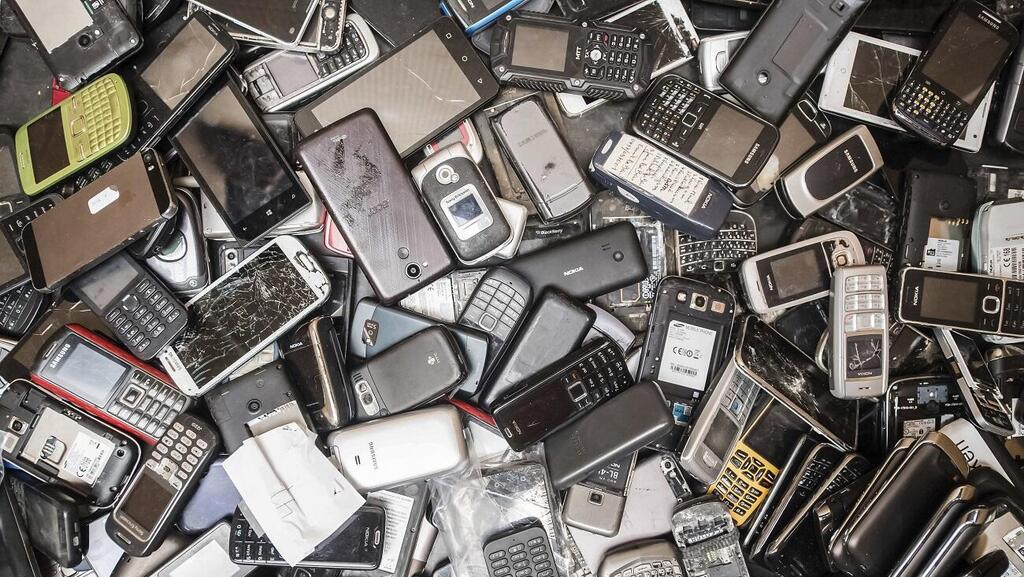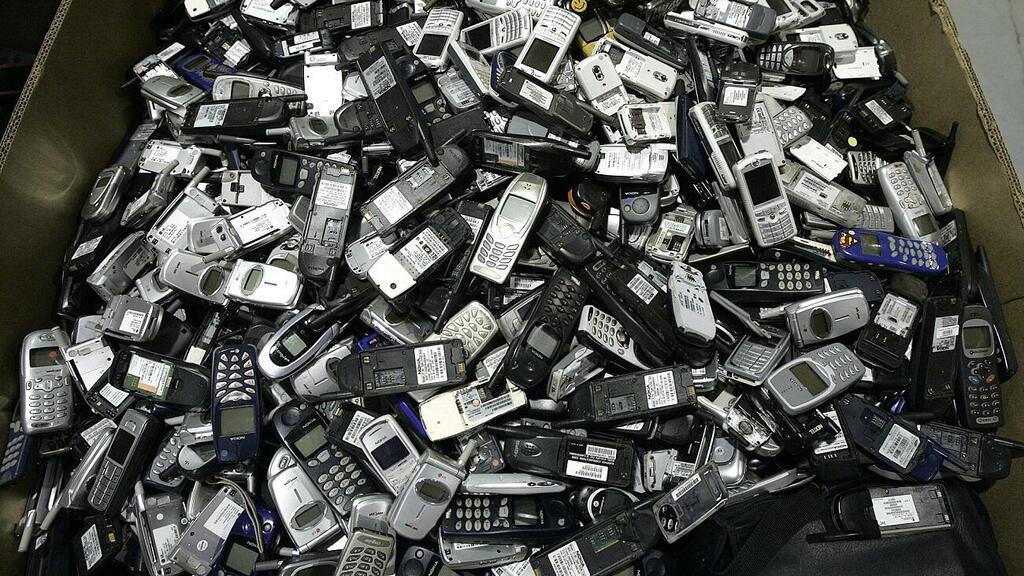Getting your Trinity Audio player ready...
Statistically, many people keep old and unused mobile phones in dusty drawers at home because they contain important data and materials, or because their children are not interested in them, or due to a broken screen that they planned to but never got around to fix.
More stories:
More than five billion old and unused mobile phones, which currently occupy drawers and closets worldwide, are now being considered for reuse or recycling. Last week, 12 leading mobile operators signed a joint declaration of common goals, together with the GSMA organization, representing the mobile industry worldwide. This initiative aims not only to encourage the repair, refurbishment, and resale of old devices but also to expedite the recycling processes of the materials and metals they contain.
On paper, the driving force behind this initiative is environmental responsibility through e-waste prevention and concern for the state of the Earth. In practice, it is also seen as a potentially lucrative opportunity for cellular providers. The GSMA estimates that significant amounts of metals such as gold, palladium, silver, copper, rare elements, and important minerals with a total value of 8 billion dollars could be recovered from devices that won't be resold. Additionally, enough cobalt to supply 10 million electric vehicle batteries could be obtained. These metals are critical components in mobile phones, computers, and many other everyday devices. Demand for these metals has surged to 125,000 tons per year and is expected to reach 315,000 tons by 2030.
The problem is that a significant portion of rare metals is currently extracted through mining, and even the production of a very small quantity requires massive excavations in large areas, a process with significant environmental consequences, including the release of large amounts of toxic and radioactive substances into the air. This creates tremendous pressure on global production. The growing demand leaves little choice and necessitates technological efforts to efficiently recover these metals from old devices.
In a project led by Tele2, a Swedish telecommunications company, and Orange, a French telecommunications company, the operators commit to increasing the number of used mobile devices collected through trade-in transactions to at least 20% of the number of new devices they distribute by 2030. This means that all the devices collected in these return programs will be repaired, reused, or dismantled, and their materials will be transferred to recycling organizations.
The agreement aims to reduce e-waste, extend the lifespan of mobile devices, and enable material recycling. According to Erik Wottrich Head of Sustainability at Tele2, "The increasing amount of electronic waste, including mobile phones, generated each year is not only an environmental challenge for our industry but also a potential economic loss." The GSMA's vision, published in November 2022, speaks of new devices being manufactured using 100% recycled materials and 100% renewable energy.
Leading manufacturers worldwide have invested significant resources in research and implementation of the use of recycled materials over the past decade. Conscious and more efficient use of such materials can lower the production cost of smartphones and their final price, as well as encourage underserved populations to connect to the internet. On the other hand, companies need to overcome people's reluctance to part with their old devices due to concerns about personal data leakage and the desire to keep a backup device.
In Israel, cellular networks and providers offer trade-in transactions, which allow customers to return their old phones and receive credit for purchasing a new phone based on the model and condition of the device. For example, the Dynamic network allows the return of devices from any brand and offers credit for purchasing a new device from a different brand, including Samsung and Apple. Additionally, the Electra Warehouse network allows trade-in transactions for any quantity of smartphones from both companies, regardless of the model or condition, and provides cash credit for purchasing any electronic product in the network.
"We launched the service a few months ago, and since then, we have conducted thousands of trade-in transactions. We have identified that this is one of the preferred purchasing options for Israeli consumers," Eli Edri, CEO of the Dynamica mobile phone retail chain, said.
According to Liron Katz, Vice President of an Israeli electrical supplies chain, "In a survey we conducted among customers, we found that about 20% of them replace their phone once a year, 30% replace it every two years, and 50% replace it every three years or more. We also found that 85% of Apple and Samsung customers hold more than four smartphones at home without using them."
In most cases, the old phones collected in trade-in transactions in Israel are transferred to international companies that operate sorting centers in the Far East. There, the functional phones are refurbished and repaired using parts salvaged from the devices that cannot be reused. The refurbished phones are then sold to companies in Africa that market them online. The valuable metals are recycled and sold to manufacturers in the East.



